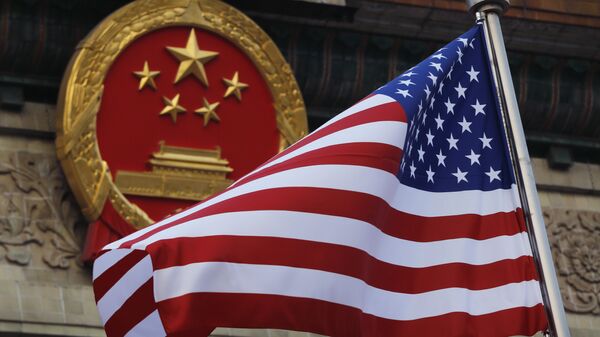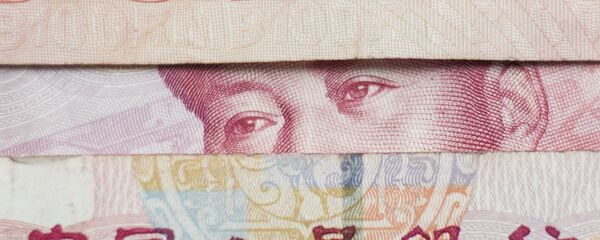New Delhi (Sputnik): Terming the ongoing tariff war between the US and China as mere posturing, India has said that it will not take sides on the issue. After the conclusion of the fifth India-China Strategic Economic Dialogue, India has spelled out its priorities with neighbor China with whom it is currently attempting to retune its ties that had faltered in the aftermath of the military standoff at the Doklam plateau last year.
"While India does not like any measures that harm the rule-based international trade regime, there is no reason to take sides in this. We are not that level of a player in the market. Our shares are much smaller. We are the takers of the rules than makers," vice-chairman of NITI Aayog, Rajiv Kumar said after concluding the discussion with his Chinese counterpart He Lifeng, the chairman of China's top policy planning body — the National Development and Reform Commission (NDRC) in Beijing.
The Fifth Meeting of India-China Strategic Economic Dialogue was held in Beijing today. Mr. Rajiv Kumar, Vice-Chairman of NITI Aayog and Mr. He Lifeng, Chairman of National Development and Reform Commission (NDRC) co-chaired the dialogue. pic.twitter.com/dQI6jBKTxi
— India in China (@EOIBeijing) April 14, 2018
"If you notice, both sides have announced their position (to cut tariffs) but they have not given the dates. This is posturing," Rajiv Kumar added.
Since the tariff war broke out between the US and China, analysts are predicting trade gain for India. But, Rajiv Kumar has a totally opposite view on the issue.
"If war happens, elephants fight and grass get affected. We are part of the grass. We don't want that," Kumar said, adding that the US and China being the world's top two economies are the giants.
"If trade stops, war starts": Jack Ma has warned against a trade war between China and the US. pic.twitter.com/2PQWVmqQj4
— SCMP News (@SCMP_News) April 10, 2018
"Even if India chooses to take a responsive action on its imports, the impact on our exports could be even higher as the volatility in the foreign exchange rates would also rise. We must have a backup plan which should include opening bilateral trade with key trading partners, taking precautions that we remain WTO compliant," DS Rawat, Secretary General, the Associated Chambers of Commerce and Industry of India told Sputnik.
India has also asked China to allow India's exports of sugar and soybeans. Earlier this month, New Delhi had also raised the widening trade balance in favor of China with Beijing during the 11th meeting of the India-China Joint Group on Economic Relations, Trade, Science and Technology held in New Delhi.
India had a $51.1-billion trade deficit with China in 2016-17 which went up to $52.9 billion in the first 10 months of the 2017-18 fiscal year which ended in March.



